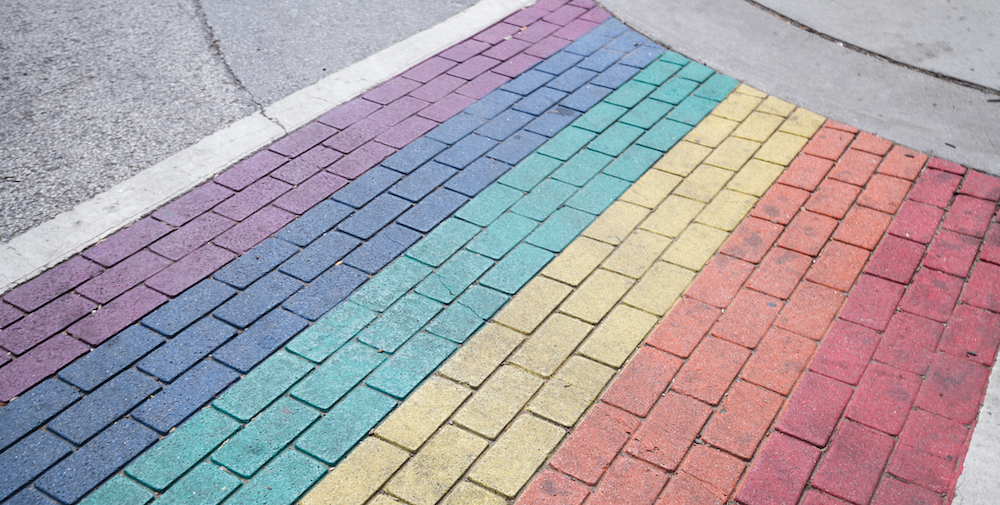
Jenni Tellyn
This article was written by Jenni Tellyn, KM Consultant and former Head of Knowledge Management at Stephenson Harwood
The legal tech and law firm world has got its quest to open up the sector to more diverse people well underway. There is a growing realisation (some might even call it part of The Great Realisation), however, that simply changing your logo to a rainbow for Pride Month and saying on your website that you strive for diversity may not be enough to actually move the dial in practice on who joins the profession and how firms feel to diverse people within them. In the wake of the Covid pandemic, we know that employees across the world are voting with their feet if they don’t feel their values are truly reflected in their organisation so now more than ever employers are focused on creating tangible and lasting cultural change.
There are loads of great examples of ways firms are rising to the diversity challenge and one is to give voice to their own people’s lived experiences and champion visibility of (especially senior) role models from diverse groups. The theory goes that, if employees can see people who look like them thriving at work, this might inspire others to join and highlight how career progression isn’t impacted by diverse characteristics being fully on show. I identify as a lesbian and, since I discovered this about myself in my 30s, have always been out at work. My partner at the time was pregnant with our first daughter and, as I teed things up to take some parental leave, I felt my hand was slightly forced in coming out as I felt I needed to explain why I didn’t look pregnant but was having a baby! In fact, I came out again and again and again as HR, colleagues, clients, family, friends, midwives and strangers all needed to be brought into the loop in different ways. When I came out, I wasn’t aware of any other out gay women in the London office of my firm and I’ve been reflecting on why this doesn’t seem to have changed a great deal at many firms since.
Pride in London highlighted (in its 2018 Pride Matters survey) that gay women were twice as unlikely as their gay male colleagues to be out in the workplace. And the Law Society’s 2021 survey found that a lack of LGBT+ role models at work was the most cited “pressing issue” for gay men (42%), lesbian/gay women (55%) and bisexual individuals (78%) who responded. So where are all the lesbians and why is it that gay men might feel more able to be visible and come out at work?
What do we even mean by “visibility”?
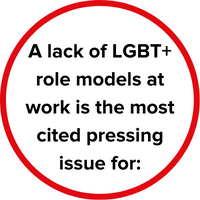
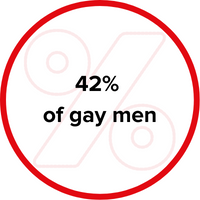
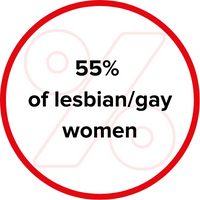
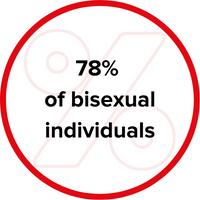
But why do some people feel that lesbian visibility is an issue?
We can point to historical reasons why lesbians might feel invisible. The urban myth of Queen Victoria’s failure of imagination and apparent belief that lesbian activity didn’t go on at all is only a myth but it is a fact that lesbianism wasn’t criminalised in the UK in the same way as sexual acts between men were. The fact that it was therefore not the subject of a protest movement to overturn the law, may have led to relative invisibility of that part of the LGBTQ+ community.
Popular portrayals of the gay community at the peak of the AIDS crisis often largely fail to recognise the contribution of an enormous number of lesbians who tended their dying gay male friends as surrogate chosen “family” (with a notable exception of films such as “Milk”) leading to further invisibility.
If one were to try to meet the lesbian community IRL, that’s becoming more and more tricky. Lesbian bars and community spaces have long been disappearing and “She Bar” in Soho is now the only dedicated lesbian bar left in London. Some argue that, as other spaces evolve to be more inclusive, the need for lesbian bars has diminished but nights such as “Butch, Please” at London’s Royal Vauxhall Tavern have recently stated that they are more determined than ever to preserve the unique atmosphere of their space and reserve the right to refuse entry to cis male attendees.
Do we just recoil at the word “lesbian” so people who self-identify as women who love women are reluctant to use the word? So often a playground insult, and more recently associated with disappointing transmisogyny, is it just not as palatable to mainstream society to be a lesbian than our more flamboyantly “fun” gay male counterparts? There are some who wonder whether the younger generation are rejecting the use of the word in favour of less loaded and more broadly inclusive terms like “queer”.
But the major reason for lesbian invisibility may be a safety issue. Some lesbians perform their gender in a “loud bod[ied]”, “masculine” way which challenges society’s very idea of what a “woman” looks like, and the anti-patriarchal idea that lesbians don’t need men in order to be happy gets right up in the grill of some men and has resulted in violence and abuse. We were all horrified by the 2019 London night bus attack on a lesbian couple who refused to kiss for a bunch of drunk men and Galop’s 2021 Hate Crime Report showed that two-thirds (64%) of LGBTQ+ people had experienced anti-LGBT+ violence or abuse. Is it any wonder that it might feel safer for some lesbians to try to be invisible sometimes? Even living in my gay Brighton bubble, I’ve grappled with the split-second decision when walking down the street with my fiancée as to whether to drop her hand or squeeze it tighter when approaching other street users.
This is why, this Pride Month and frankly every month, it feels that (even where some firms are making steps towards greater inclusion), there is still so much to do. Even in the UK where we arguably have it easy compared with the 70 countries where it’s still illegal to be gay.
Is there hope on the horizon?

Jenni Tellyn is a recovering debt capital markets lawyer and knowledge management consultant. She works with 3Kites Consulting Ltd and helps professional services firms on a range of knowledge management and legal tech strategy, process and implementation projects. Fiercely supplier independent, she bridges the gap between lawyers and technologists to support adoption of the right tech and KM solutions.

